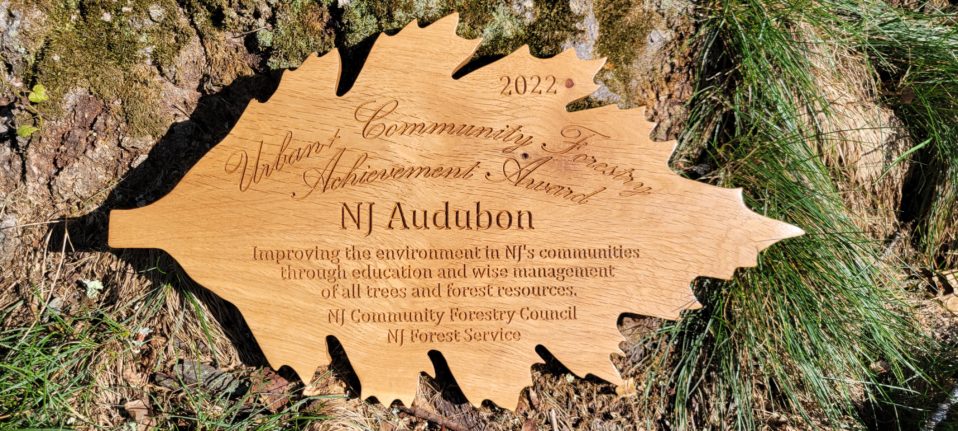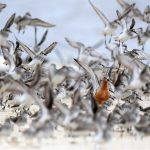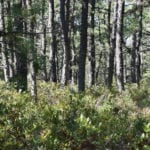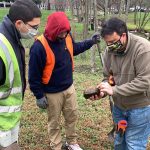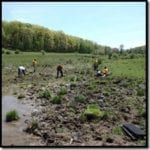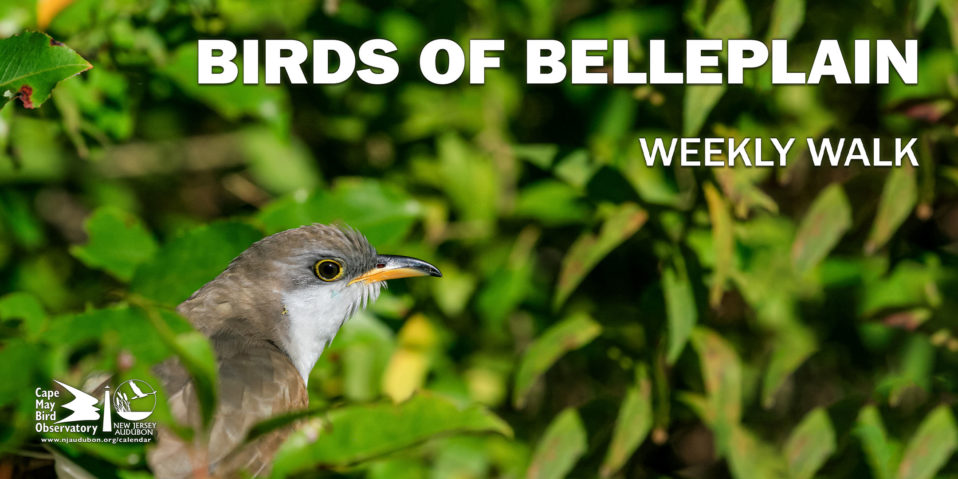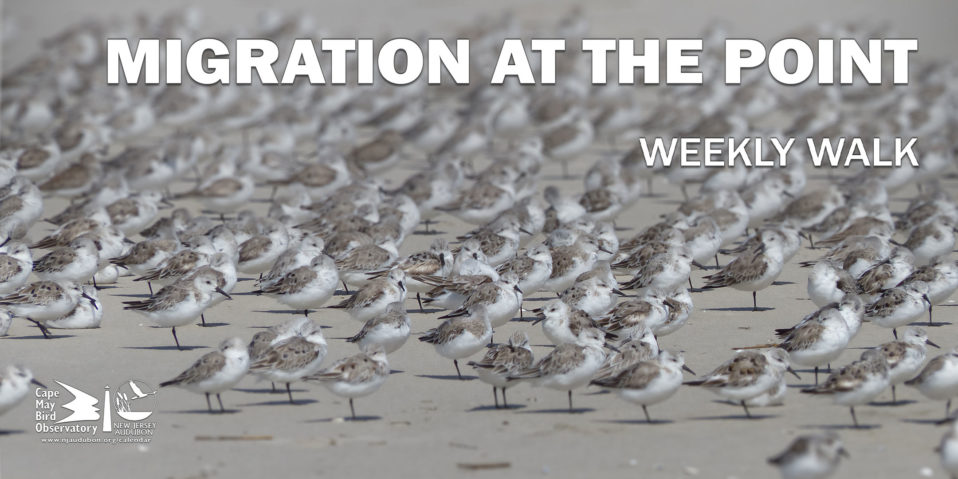On October 13, 2002, New Jersey Audubon, as well as NJ Audubon Director of Forestry Don Donnelly, received a 2022 NJ Urban & Community Forestry Achievement Award by the New Jersey Forest Service, the New Jersey Community Forestry Council, and the New Jersey Tree Foundation.
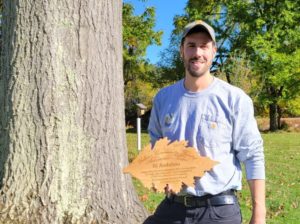
NJA Stewardship Project Coordinator of Forestry Ryan Hasko accepted the award on the behalf of NJA. Photo by John Parke
The New Jersey Urban & Community Forestry Achievement Award recognizes those whose outstanding efforts have greatly contributed to the field of urban and community forestry. The award recognizes those whose achievements in urban and community forestry by improving New Jersey’s communities through wise management of trees and forest resources and the development of a self-sustaining local urban and/or community forestry program, as well as enhancing the beauty of New Jersey’s cities and towns with programs and projects for trees and forests.
Specifically for community forest projects, NJA has been promoting sustainable forest stewardship/management in many communities across NJ and actively manages tracts of forested land throughout the State (both public and private) since 2005. Since that time NJA has written numerous Forest Stewardship Plans for our forested sanctuaries, as well as for many private and public properties. In total, NJA has developed and/or implemented Forest Stewardship Plans for over 60,000 acres in NJ. Included in these projects is our Hawk Rise Sanctuary in Linden, NJ which NJA developed and is implementing a Forest Stewardship Plan (95 acres) at this urban setting.
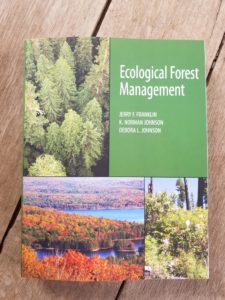
Ecological Forest Management text book by world renowned forest ecologists: Dr. Jerry F. Franklin, Dr. K. Norman Johnson and Dr. Debora L. Johnson
Additionally, NJA also has been instrumental in bringing ecological forest stewardship in many NJ communities to a heightened awareness in the public eye across through multiple media articles, blogs and other events, workshops, tours, and press. These media placements have appeared in our quarterly magazine, our website, and in numerous newspapers, magazines, and TV spots, as well as leading numerous tours of our forestry projects over the years with the public, government agencies, other NGOS, universities and forest conservation organizations. One NJA project in the NJ Pinelands community even appears in the 2018 Ecological Forest Management textbook written by Dr. Jerry Franklin, K. Norman Johnson and Debora Johnson. This book is the require textbook for forest ecology classes in universities and colleges across the United States. See page 241 of the book for specifics.
Other examples of NJ Audubon achievements in promoting Ecological Forest management in our communities are:
In 2009 – NJA implemented a Conservation Innovation Grant (CIG) with NRCS that addressed the challenges associated with paying for forest management. The stated goal in NJA’s project was to develop a specialty use for the wood byproducts created while implementing forest stewardship work associated with habitat restoration, wildfire fuel load reductions and climate charge resiliency issues at our Hovnanian Sanctuary in the NJ Pinelands. NJA then marketed this consumer product as a model for landowners; demonstrating how utilization of low-quality wood fiber can offset management costs associated with land stewardship. Developing such a product has served to show a need to rebuild a forest products industry in NJ, which was identified as a barrier to more proactive ecological forest stewardship in the region. Ultimately the product was a pitch pine mulch that was used for NJ blueberry growers in the Pinelands region and NJA through this project ultimately helped establish and then branded “Made with Jersey Grown Wood” as part of the “Jersey Grown” product line with the NJ State Department of Agriculture.
stewardship in the region. Ultimately the product was a pitch pine mulch that was used for NJ blueberry growers in the Pinelands region and NJA through this project ultimately helped establish and then branded “Made with Jersey Grown Wood” as part of the “Jersey Grown” product line with the NJ State Department of Agriculture.
 In April of 2012, NJA became the first organization in the State of New Jersey to become Forest Stewardship Council certified. Under supervision of the Rainforest Alliance, NJA could provide FSC certification to qualifying NJ landowners. Lands certified under the Forest Stewardship Council are held to a higher standard of land management. Over the years NJA had certified 13,000 forested acres in New Jersey, including our sanctuaries and public and private lands. This included developing forests stewardship plans (FSPs) for NJA owned sanctuaries as well as implementation of FSPs on a multitude of properties. Implementation has taken the form of projects such as young forest habitat creation for Golden-winged Warbler at the Sparta Mountain Wildlife Management Area. (Note: the Sparta WMA is no longer under the FSC certification as the State decided to not participate in the program after a few years under the certification due to costs). Despite the State withdrawing from the FSC certification, NJA continues to assist the NJDEP with management of the Sparta Mountain WMA (where in 2020 a Male Golden Winged warbler was detected on territory in one of the treatment cuts), as well as participates in annual Golden Winged Warbler point count surveys associated with other NJDEP forest management projects, as well as, NRCS Working Lands for Wildlife Projects associated with forest wildlife species. In total this accounts for 46 forest stewardship projects associated with Golden Winged Warbler in NJ.
In April of 2012, NJA became the first organization in the State of New Jersey to become Forest Stewardship Council certified. Under supervision of the Rainforest Alliance, NJA could provide FSC certification to qualifying NJ landowners. Lands certified under the Forest Stewardship Council are held to a higher standard of land management. Over the years NJA had certified 13,000 forested acres in New Jersey, including our sanctuaries and public and private lands. This included developing forests stewardship plans (FSPs) for NJA owned sanctuaries as well as implementation of FSPs on a multitude of properties. Implementation has taken the form of projects such as young forest habitat creation for Golden-winged Warbler at the Sparta Mountain Wildlife Management Area. (Note: the Sparta WMA is no longer under the FSC certification as the State decided to not participate in the program after a few years under the certification due to costs). Despite the State withdrawing from the FSC certification, NJA continues to assist the NJDEP with management of the Sparta Mountain WMA (where in 2020 a Male Golden Winged warbler was detected on territory in one of the treatment cuts), as well as participates in annual Golden Winged Warbler point count surveys associated with other NJDEP forest management projects, as well as, NRCS Working Lands for Wildlife Projects associated with forest wildlife species. In total this accounts for 46 forest stewardship projects associated with Golden Winged Warbler in NJ.
NJA has also been at the forefront of ecological forest management legislation by helping to craft The Prescribed Burning Bill (A1675 Authorizing Certain Prescribed Burns).
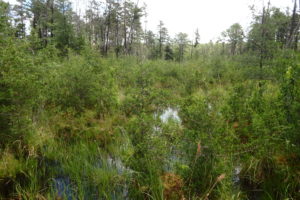
Atlantic White Cedar restoration area in southern NJ. Photo be John Parke
Furthermore, in 2020 NJA received funding from the National Fish and Wildlife Foundation to implement a project with private landowners in the Maurice River and Rancocas Creek Watersheds (outside of the NJ Pinelands region) to restore Atlantic White Cedar (AWC) wetlands. In this effort, New Jersey Audubon is working with more landowners on smaller restoration areas. New Jersey Audubon staff were interviewed about this work in a piece covering the AWC “ghost forests”. NJA has also been working with several larger cranberry producers in the Pinelands to assist them with AWC restorations at their properties, these projects account for over 1,000 acres of AWC restoration work on private lands.
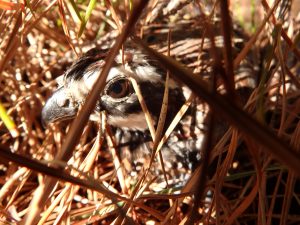
Male Northern Bobwhite Quail at NJ Pinelands Translocation site. Photo by John Parke
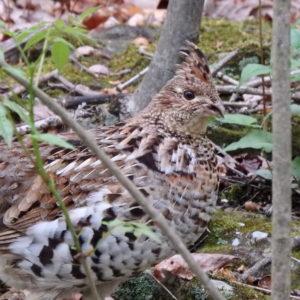
Ruffed Grouse in 2016 at Stokes State Forest (Sussex County, NJ). Photo by John Parke
Lastly, since 2014 NJ Audubon has been working with private landowners, as well as the NJDFW, to help recover two iconic bird species, the Northern Bobwhite Quail, and the Ruffed Grouse. Both species are associated with early successional young forest habitat. In an effort to bring attention to the needs of our forests to have better age-class diversity and species composition (which are attenable through implementing ecological forestry practices), NJA performed a 4-year wild Bobwhite Quail translocation project in the NJ Pinelands and is currently in the last steps of unveiling a Ruffed Grouse habitat suitability model which also provides scenarios for grouse population dispersal based on predictions associated with creating young forest habitat through forests stewardship practices in northern NJ. In both cases, NJA is providing the public, academics, land managers, NGOs and government agencies with critical research on these forest species and real-world demonstration projects in two of our most important forested landscapes (The NJ Pinelands & The NJ Highlands) in the state. These NJA forest projects demonstrate how active forest conservation management grounded in science can achieve multiple ecological benefits and services that not only address declining wildlife species, but also can address climate change impacts.
New Jersey Audubon would like to express sincere gratitude and appreciation to the New Jersey Forest Service, the New Jersey Community Forestry Council, and the New Jersey Tree Foundation committee for selecting us for the award. We also thank the committee for continuing to support and encourage science-based forest conservation practice, programs, and policy. NJ Audubon would also like to extend our congratulations to the rest of the 2022 award winners and commend them for their efforts to make New Jersey a better place for people and wildlife!




